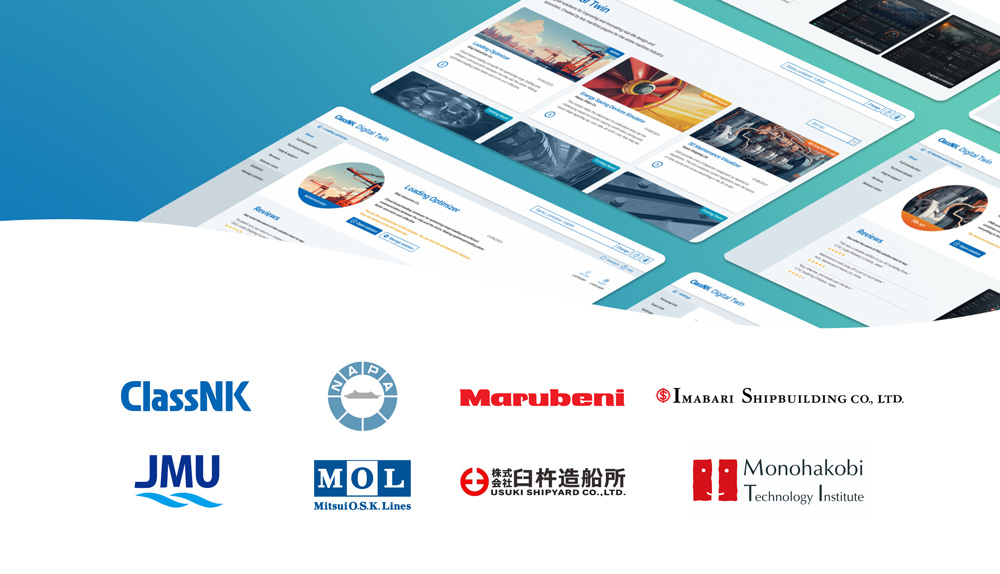Cross-Industry Collaboration Launches to Accelerate Digital Twins Uptake in Shipping
The Digital Twin project involving Japan-based ship owners, shipbuilders, classification society and a software provider signals a potential breakthrough in the sharing of ship design and operational data.
Japanese maritime leaders have announced the successful completion of the early phases of a cross-industry project aimed at creating a secure data-sharing framework between shipyards and shipowners to advance the use of digital twins throughout a ship’s lifecycle. The project, which aims to enable the use of a vessel’s unique design data to optimize efficiency and safety at sea as well as the sharing of operational data to inform new designs, brings together MTI Co., Ltd., Mitsui O.S.K. Lines, Ltd. and Marubeni Corporation, shipbuilders Imabari Shipbuilding, Japan Marine United Corporation, and Usuki Shipyard, software and data services provider NAPA, and classification society ClassNK.

Initial results have confirmed the feasibility of increased data sharing between shipyards, shipowners, ship managers and charterers, among other stakeholders, by overcoming obstacles related to the sharing of sensitive design and operational data.
The first two phases of the project identified over 30 potential use cases where the data and 3D models used to design the ship can be shared securely and used to create a vessel-specific digital twin that helps improve operational efficiency and safety throughout its lifecycle. Further analysis confirmed the potential and value of digital twins in supporting loading calculations, ship condition monitoring and energy-saving device evaluation.
Building on the success of the feasibility study, the next phase will develop a new platform that will enable 3D models created during the design stage to be shared in a secure and access-controlled digital environment, together with new business models to implement this innovative approach in practice in commercial agreements. This could create a new revenue stream for shipyards and solution providers, as well as mechanisms to share benefits between stakeholders. This phase of the project is led by ClassNK as an impartial entity to ensure that the platform is neutral and fair.
The project aims to start operation in 2025, signaling a potential breakthrough in the sharing of design and operational data to overcome traditional barriers to the adoption of digital twins in the maritime sector.
The partnership also explored ways in which operational data can be fed back to shipyards to provide valuable insights on how their concepts perform in real life, thereby enabling naval architects and engineers to improve future ship designs.
